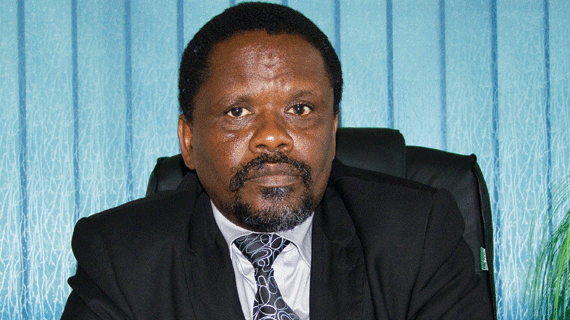
When the late Nelson Mandela was young he was surrendered to his surrogate father by his sobbing mother who remarked: Mntanami qinis’ ufokothi, (be resolute). Literally, qinis’ ufokothi refers to one pulling the stomach in, under a heavy load or undertaking a daunting task.
After that Mandela indeed bequeathed himself as a man.
His quest for knowledge and education was unparalled and so was his desire for the freedom, not only of the oppressed, but of oppressors as well.
Twenty seven (27) years of stone crushing at Robben Island and elsewhere, did not crush this great man’s spirit of freedom.
After 10 000± days of incarceration, Mandela surprised his hitherto oppressors and jailers. Years before being set free, he was offered release ahead of his cellmates, Mandela turned down the offer, arguing that he would be the last one to leave the cell.
At one time when the Afrikaaner regime tried to engage him while he was in prison, he retorted: The jailed cannot negotiate with the jailers – his jail status would make him approach negotiations from an inferior and compromised position of servant-master.
His book: The Long Walk To Freedom traces the man’s struggle from childhood to death. Contrary to personalised party politics we see all around the African continent, Mandela kept politics free from personalisation.
On his release, his maiden speech was on unifying South Africa into a rainbow nation that would embrace every nationality.
- Chamisa under fire over US$120K donation
- Mavhunga puts DeMbare into Chibuku quarterfinals
- Pension funds bet on Cabora Bassa oilfields
- Councils defy govt fire tender directive
Keep Reading

Solomon Izang Ashoms in the DailyNews of 11/12/2014 (news24.com) posed a poignant question, as to whether Mandela was a Christian or not.
Biblically, believers were first called Christians at Antioch. Dwellers of Antioch saw a change in the lifestyles of believers, resulting in them being viewed as Christ-like, hence the coinage Christianity.
Christ grew strong and was in favour with God and men, Luke 2 : 40. He healed the sick, raised the dead, sympathised with the downtrodden and preached emancipation from the shackles of bondage.
An analysis of Mandela’s life before and after imprisonment portrays Christ-like attributes. He passionately fought for equality for both blacks and whites, in fact he once remarked: “I will fight oppression by blacks equally as I fought it being perpetrated by whites.”
Like Christ, Mandela practised servant leadership. The trappings of power did not overpower him. One term as president of the Republic of South Africa was enough for him.
Unlike some African leaders, Mandela did not remind the nation about his liberation and prison credentials, as if that entitled him to life presidency. If there was a leader who deserved life presidency, it was Tata Mandela, yet he called it a day, while everybody else still loved him.
At his funeral, South Africa came to a halt. Yearly, some 67 minutes are dedicated to doing what Mandela would have done or loved to be done. Some were so challenged by his conciliatory prowess to the extent they thought he was too much of a saint.
Back to Ashom’s, opinion about Mandela; the following attributes ooze out from this great man.
He forgave like Jesus, he walked the walk, the long walk to freedom. He inspired love and respect – his oppressors were taken off guard by his love and respect even for his enemies.
He proved to the whole world, that Africa is capable of producing great leaders. His leadership was marked with tenacity, grace and stature that earned him world statesman status.
He understood the long walk to freedom, it was clear to him that freedom was not an event, but a process which needed continuous checks and balances. He was selfless and outreaching.
He was a human being, an ordinary person. He was at home with everyone. The man was free from injustices of segregation and maginalisation. He made mistakes and did not cover up his mistakes by bully tactics.
If Christianity is being Christ-like, doing good, serving others above self, then indeed Mandela was a Christian. He may not openly have professed religion, yet he followed on Christ’s footsteps.
Being saved or not saved, that is God’s and not man’s jurisdiction.
Also remember the Bible says whatsoever you resolve on earth (according to God’s will) is honoured in heaven. The world gave Mandela thumbs up.










